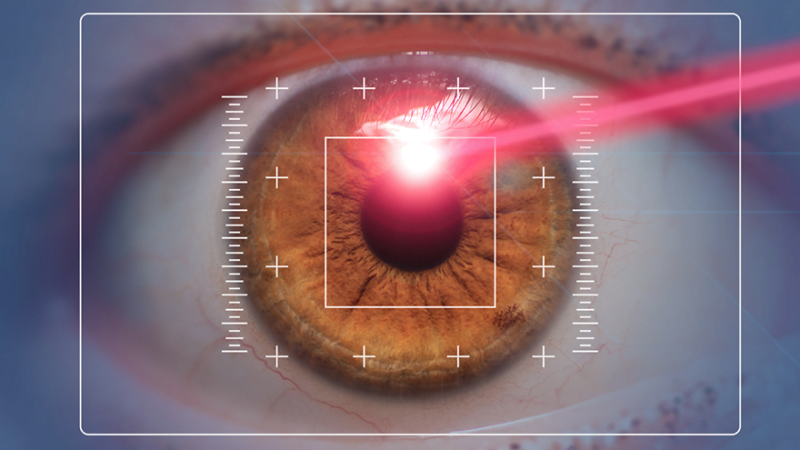Sign Language Interpreters For Disabled People

There are many options for those who have special needs. You can find deaf interpreters from international institutions, technical and vocational schools, and even from your local community. It is important to consider which level of training your interpreter has and how long they’ve been working with people with hearing disabilities. Then, you can choose an interpreter based on their reputation and skill level.
Sign language interpreters
Sign language interpreters for the disabled are required under the Americans with Disabilities Act (ADA) for important and long-term communications. However, they are not required at social events, such as funerals or weddings, where communication may be less important. A sign language interpreter can be invaluable to these individuals, and they should always be given proper lighting during meetings or presentations.
If you are planning to hire an interpreter, it is important to prepare relevant documents for the interpreter. These can include technical phrases, acronyms, handouts, outlines, or un-captioned movies. These documents should be provided to interpreters before the event. You can also email them the contents of the presentation before the event, so they have it in writing.
It is important to discuss the rates with your interpreter before you hire them. Some agencies may charge more for evening or weekend assignments, and some may charge you for the travel time and parking fees. The interpreter should be able to see the hard-of-hearing or deaf person clearly.
The ADA requires a business to provide qualified sign language interpreters. These interpreters translate signs into speech. In addition to transliterated Signed English, a sign language interpreter can also provide services in tactile and cued speech modes. Most people don’t realize just how important this service is to deaf people. Sign language interpreters for the disabled are an essential part of ADA compliance, so businesses that don’t provide them are subject to heavy penalties.
Sign language interpreters are also available to assist with other communications, such as written forms and printed materials. Some Deaf people do not know how to sign, so they rely on lip reading or other communication techniques to follow lectures. If you are unsure about what is being said, repeat questions or phrases until you can understand the interpreter.
ADA obligations
The ADA imposes a number of requirements on healthcare providers to provide qualified interpreters to disabled people. Hospitals and physicians must provide interpreters for deaf patients upon request. Private practitioners and HMOs must also provide qualified interpreters for patients. The ADA makes it illegal to refuse to provide interpreters. Individuals with disabilities also have the right to qualified interpreters for Social Security Administration activities and meetings. Public and private schools must provide qualified interpreters for parents and students who are deaf.
ADA obligations for interpreters for disabled individuals may not be immediately apparent to employers. Employers can take steps to make it easier for disabled employees. Wal-Mart, for example, agreed to provide sign language interpreters at scheduled meetings and during work evaluations. The ADA’s benefits can be illustrated by Wal-Mart’s promise to provide sign language interpretation. The ADA also places obligations on translators and auxiliary aid providers.
It is crucial that organizations are aware of their obligations under the ADA. This is crucial in meeting the needs disabled people. Federal audits may be conducted against organizations that fail to comply. They could face suspensions from federally-funded programs and penalties, as well as fines and penalties. Organizations could also be subject to discrimination law suits. In one recent case, a Deaf man sued a Washington state-based university for discrimination. Although the university denied discrimination, the ADA mandates that public accommodations provide effective communication services to the deaf community.
ADA obligations for interpreters of disabled persons can vary depending on the situation. Some may require an interpreter full-time, while others may only need an interpreter in specific situations. Employers may be required to provide ASL interpretation for Zoom and video conferences. Other employers may need an interpreter only when the deaf employee requires it.
Sign language interpreters: Ethics in hiring
It is important to think about the ethics of hiring sign language interpreters who are disabled. Sign language interpreters must adhere to strict ethical guidelines and maintain confidentiality. They should be present in locations where they can easily be accessed by consumers. In addition, they should adhere to industry codes of ethics and work in an appropriate manner in each setting. You can file a complaint with the licensing agency of your state if you believe a sign language interpreter/transliterator is violating these ethics.
It is important to remember that sign language interpreters are not professional actors. Although they cannot bridge communication gaps, they can make it seem like cultural and social distances are smaller than actually exist. Some sign language interpreters in the past have said or done things that were inappropriate for the participants and the audience. However, interpreters are hesitant to go outside of the professional-client relationship.
The National Association of Interpreters in Education has adopted a Code of Ethics for educational interpreters. This Code of Ethics outlines the ethical obligations of both clients and interpreters. It is important to remember, despite the importance of ethical guidelines being there, that interpreters are not allowed to act in their own interest or advocate for any one viewpoint.
In addition to following regulations and policies of school districts and the school, sign language interpreters should use professional discretion when using social media and do not engage in dual roles. They should also maintain the confidentiality of all parties involved, including the IEP.
Reputation of sign-language interpreters
It is important to have a good reputation, especially for sign language interpreters working with the disabled. They should be friendly and approachable, and they should make the disabled feel included and valued. They should be respectful of time and should always address the person in a direct manner, not looking at the interpreter. They should speak at a slow and measured pace and should not talk too fast or too soft.
Certified professionals with years of experience are the best sign language interpreters. They have studied American Sign Language extensively, and they are required to obtain continuing education units (CEUs) annually to maintain their certification. UCSC uses interpreters who have been nationally certified. Interpreters must also adhere to the RID’s strict code of professional conduct. The Code of Ethics requires sign language interpreters must adhere to strict standards of confidentiality and neutrality.
Sign language interpreters are a communication tool for the hearing impaired. The American with Disabilities Act (ADA), requires that businesses provide sign language interpreting services to the disabled. These services are needed in many settings, including the legal and education systems, as well as the law enforcement and law enforcement systems.
The ADA regulations require that health care providers provide auxiliary aids to patients with hearing impairments. Hospitals in New York and Connecticut are legally required by law to provide sign language interpreters. To avoid this obligation, hospitals must prove that they are able to provide sign language interpreters. The National Association of the Deaf considers American Sign Language the backbone of American deaf culture. Using an interpreter who is certified in American Sign Language is one way to ensure a high-quality service.
Sign language interpreters: What are the requirements?
There are many things you should keep in mind when hiring sign language interpreters to assist disabled people. First, a sign language interpreter should be certified. It is important to find an interpreter who can understand the disability services Melbourne . There are two main types of sign language interpreters: American Sign Language (ASL) and signed language. While the two systems are similar, there are some differences. A sign language interpreter might not be able communicate information accurately to someone using a different sign language.
The ADA requires many institutions to provide a qualified ASL interpreter. The ADA also requires that hotels provide teletypewriters to their guests upon request. It is illegal to discriminate against persons with disabilities. Therefore, hiring an interpreter is a great way to ensure that all people with disabilities have equal access and use of the facilities and services they require.
When hiring a sign language interpreter, you should consider the cost. A sign language interpreter typically costs more than professional interpreting services, so it is important that you consider the cost. The cost of a qualified sign language interpreter will depend on your budget and what you need.
Sign language interpreters must register in Pennsylvania. Act 57 in Pennsylvania defines the requirements for sign-language interpreters. The entity that sponsors an event must ensure that the interpreter is licensed and available to work in the area. Also, the sign language interpreter must be willing to work in any county.
Other health care providers, such as HMOs and private practitioners, must provide interpreters upon request. It is illegal to discriminate against deaf people and refuse to provide interpreters. The ADA also guarantees that individuals have the right to an interpreter for proceedings and activities in the Social Security Administration. Public and private schools must provide interpreters to assist people with disabilities.






